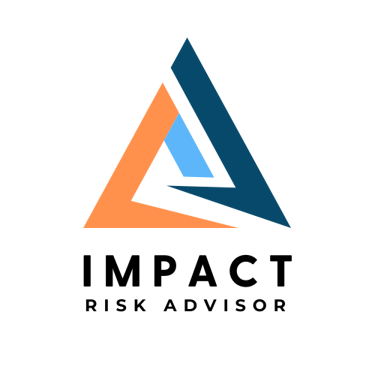

SOC (System and Organization Controls) reports provide independent assurance over an organization's controls. These reports fall into two categories: SOC 1 and SOC 2, each of which can be issued as either a Type 1 or Type 2 report.
SOC 1 focuses on controls relevant to financial reporting.
SOC 2 evaluates controls related to security, availability, processing integrity, confidentiality, and privacy.
Each SOC report is further classified based on its scope and evaluation period:
Type 1 assesses the design of controls at a specific point in time.
Type 2 evaluates both the design and operational effectiveness of controls over a defined period.
These reports help organizations demonstrate compliance, build trust with stakeholders, and meet regulatory or contractual requirements.
SOC 1 Consulting Services – We help businesses design control objectives that align directly with Internal Control over Financial Reporting (ICFR), the cornerstone of SOC 1 compliance. Our expertise ensures that your controls are not only well-defined but also effectively mitigate financial reporting risks. From identifying key transaction flows to crafting precise control activities, we guide you in building a strong framework that supports a seamless SOC 1 attestation.
Achieve SOC 2 compliance with ease. Our SOC 2 Compliance Assessments and SOC 2 audit guidance ensure you're fully prepared, identifying gaps and streamlining your path to compliance. We specialize in SOC 2 certification consulting, offering expert support in documentation, control design, team coaching, and project management every step of the way.
SOC 1 and SOC 2 Compliance Assessments
Type 1 vs. Type 2
SOC 1 Type 1
A point-in-time report that evaluates the design and implementation of controls relevant to financial reporting as of a specific date.
SOC 1 Type 2
A period-based report that assesses both the design and operating effectiveness of these controls over a set review period (e.g., 3-12 months).
SOC 2 Type 1
A point-in-time report that reviews the design and implementation of security and compliance controls aligned with the SOC 2 Trust Services Criteria as of a specific date.
SOC 2 Type 2
A period-based report that evaluates the design and operating effectiveness of these controls over time, demonstrating how well they function in practice.
Elevating Your Compliance Journey
Frequently asked questions
What is a SOC 1 Report?
A report focused on internal controls over financial reporting (ICFR) for service organizations. Used by clients and their auditors to assess financial statement impact.
Do I need SOC 2 if I don’t handle sensitive customer data?
You might. SOC 2 isn’t just about PII — it covers how you manage system security, availability, processing integrity, confidentiality, and privacy. Many customers ask for it regardless of whether you handle sensitive data.
What’s the Difference Between SOC 1 and SOC 2?
● SOC 1: Focused on ICFR.
● SOC 2: Focused on security, availability, confidentiality, processing integrity, privacy (Trust Services Criteria).
What are Trust Services Criteria, and which ones do I need?
There are 5:
1. Security (required)
2. Availability
3. Processing Integrity
4. Confidentiality
5. Privacy
You can choose only Security, which is standard for most startups. Others are optional depending on your services.
Type 1 vs Type 2
● Type 1: Design of controls at a point in time.
● Type 2: Design and effectiveness over a period of time (usually 12 months).
What’s the difference between Type 1 and Type 2 again?
Type 1 = Snapshot in time: 'Do your controls exist?'
Type 2 = Operating over time: 'Do your controls work in practice?' over 3–12 months.
Do I Need Narratives?
Optional but helpful—describe how each control objective is met, often by process or system area.
Can I go straight to a Type 2, or do I need a Type 1 first?
You can go straight to a Type 2. Type 1 is optional but helpful if you want a “quick win” while building your compliance program. Some clients will accept a Type 1 as proof of intent.
Do We Need a Risk Assessment?
Yes—required. It supports control design and helps identify threats to ICFR.
Who Issues a SOC 1 Report?
Only a licensed CPA firm can issue it, under AICPA standards.
Can We Include Multiple Entities or Products in One SOC 1?
Yes, if operationally integrated and relevant to ICFR. Use the SOC 1 Scope Decision Guide to help decide.
Can PCI or Other Frameworks Be Combined?
No—but overlapping controls may be referenced
Are ITGCs Required?
Yes—IT General Controls (e.g., access, change management, backups) are foundational to a SOC 1.
Do I need a readiness assessment?
It’s not required, but it’s highly recommended — especially if this is your first audit. A readiness assessment helps you identify gaps, fix them, and avoid surprises when the actual audit starts.
Do I need to include privacy, or can I do security only?
You can absolutely choose Security only. That’s the most common choice. The other Trust Services Criteria are optional and based on your services.
Do I need a separate Incident Response or DR Plan if I already have an InfoSec Policy?
Yes. While your InfoSec Policy can include summaries, auditors usually expect standalone Incident Response and Disaster Recovery/BCP Plans with clear steps, roles, and timelines.
If I use a GRC tool, do I still need help from an expert?
Yes. GRC tools (like Vanta, Drata, Tugboat, etc.) are great for automation, but they don’t know your business. You'll still need someone who understands SOC 2 to:
- Set the right scope
- Customize policies
- Interpret evidence expectations
- Guide remediation
